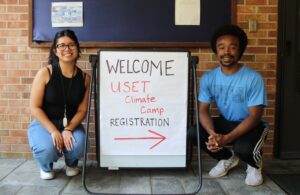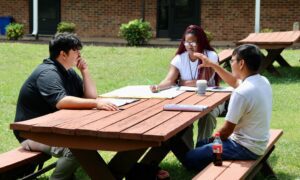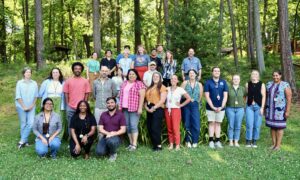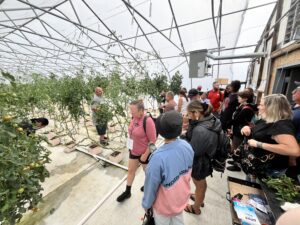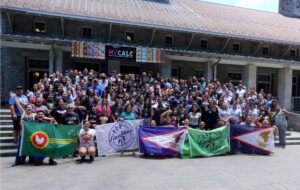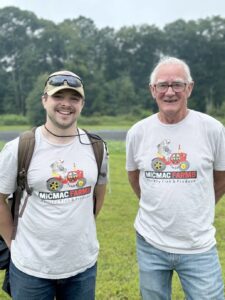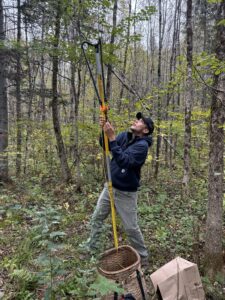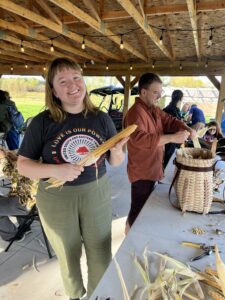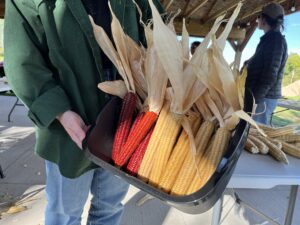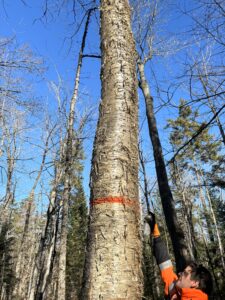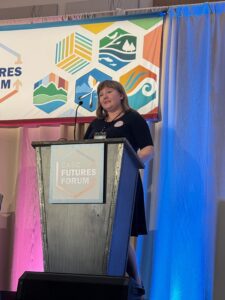The USET Tribal Climate Resilience Program would like to thank everyone who joined us for meetings, discussions, and events in 2024. We’d like to share a few of the activities and events we participated in this year, and invite you to join or invite us to more in 2025!
In the Spring, we worked to plan the Tribal Climate Resilience Camp; led a discussion on climate change and human health at USET Impact Week; attended the Annual National Indian Timber Symposium (Intertribal Timber Council meeting, hosted by EBCI), the National Adaptation Forum, and the Annual National Conference of the Native American Fish and Wildlife Society (NAFWS); and Steph and Caleb Hickman (EBCI Supervisory Biologist) met Secretary Deb Haaland on her visit to the SE Climate Adaptation Science Center (SE CASC). Tyler also attended the opening of the first major retrospective exhibit of a Wabanaki artist, Jeremy Frey’s exhibition Woven.
In the Summer, we planned and held the 2024 USET Tribal Climate Resilience Camp, attended the Native Youth Climate Adaptation Leadership Congress (NYCALC) and USET Indigenous Foodways Summit, and planned sessions for the USET Tribal Best Practices Conference.
In the Fall, we attended the National Tribal and Indigenous Climate Conference (NTICC), the 4th Shifting Seasons Summit, and the CASC Futures Forum; supported CASC participation in the NE/SE joint regional meeting of the Native American Fish and Wildlife Society; and supported climate-smart forestry and ash protection efforts on Mik’maq and Passamaquoddy lands.
In addition, throughout the year we attended staff meetings and retreats for USET and the Climate Adaptation Science Centers; supported Tribal Nations working on several climate planning documents and grant submissions; joined planning teams for multiple conferences; reviewed research proposals; co-authored the forthcoming Status of Tribes and Climate Change Report (Volume 2); supported the BIA-funded Relocation, Managed Retreat, and Protect-in-Place (RMP) Cohort Trainings; and met with a variety of working groups focusing on soil and climate monitoring, Ash protection, EPA programs, ocean planning and protection, regional vulnerability assessments, and more.
We hope everyone has a safe and healthy end to the Gregorian calendar year, and can’t wait to spend time with you in 2025!



